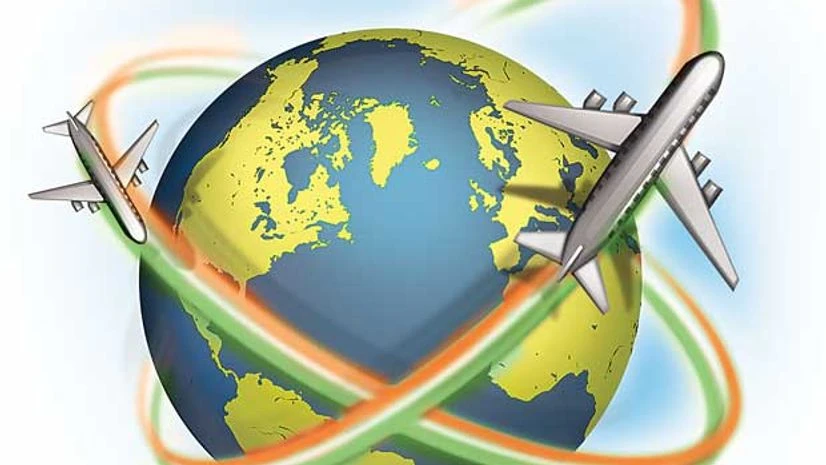Tribal Affairs Minister Jual Oram was in Botswana in August. Law Minister Ravi Shankar Prasad would head to Estonia and Latvia on Monday, while Ayush Minister Shripad Yesso Naik is scheduled to celebrate Diwali in the two-island nation of Saint Kitts and Nevis, and also visit Bermuda.
Similarly, Home Minister Rajnath Singh would soon be off to Hungary, while Railways Minister Suresh Prabhu is scheduled to visit Bosnia and Herzegovina. Surface Transport Minister Nitin Gadkari is slated to visit Nicaragua and Panama.
The ministers’ choice of destinations might seem offbeat, particularly as they will not be on holiday, but official work. The effort is part of Prime Minister Narendra Modi’s plan that all the 192 member states of the United Nations should be visited by the end of this year by at least one member of his government.
According to sources, the PM is keen that somebody from his government establish contact with each country in the world. The deadline to meet this target has been set as the end of 2016. Not that the sky would fall or heads roll if this isn’t achieved but there is a rush to meet the target, particularly after a letter from External Affairs Minister Sushma Swaraj to all ministers.

Writing on behalf of the PM, Swaraj asked her ministerial colleagues to pitch in to attain the target. She requested them to visit countries that have not been visited in the tenure of this government by the President of India, the Vice-President, the PM, herself, or her two junior colleagues.
Swaraj has also prepared a list of countries that ministers, depending on their portfolios, should visit. Focus was given to those countries where no ministerial visit has taken place in the last 20 to 25 years. The list, according to sources, comprised 60-odd countries. The list includes countries in the Americas, several small island nations across the world, African countries as well as parts of former Soviet Union and erstwhile Yugoslavia, like Bosnia and Herzegovina.
In the normal course, the President, the Vice President, the PM, the External Affairs Minister and her two juniors visit the same 50-odd countries for reasons varying from strategic to historical. These countries are either important for India's trade or energy security or are in its neighbourhood, or emotional ties bind India to these countries because of the presence of Indian diaspora.
Neither the PM or MEA is left with much time to organise visits to some of the smaller countries. This is where the PM thought that other ministers could shoulder the burden. The PM as well as Swaraj don't want these visits to be transactional, but to establish 'sampark' (contact) and 'samvad' (communication).
Government sources said these visits might not serve any immediate purpose but reviving relations with smaller countries would become building blocks for any future issue of significance that might come up in world bodies such as the UN, for example a vote for an expanded UN Security Council. India has been calling for a reform of the UN and has aspiration to be a member of the UN Security Council.
As far as reaching out to countries lesser travelled by Indian ministers, the PM has led the way. In his tenure, the PM, apart from his other visits, has also visited Seychelles, Fiji, Mozambique, all the five Central Asian Republics and Mongolia.
President Pranab Mukherjee has pitched in by paying visits to smaller nation states, like Ivory Coast and Papua New Guinea. Swaraj has paid a visit to Guatemala, while Vice President M Hamid Ansari has helped the effort by visiting Brunei.
In 2015, India hosted the heads of 14 island nations at the Forum for India-Pacific Islands Cooperation (FIPIC).
There is also criticism from within the diplomatic community, who point out that India's diplomatic corps is one of the smallest among the large nations. "It is a well-intentioned effort but puts added pressure on a team that is already stretched. We, in the diplomatic corps, should focus on strengthening our relations with key countries instead of frittering away our energies on countries with little relevance to India's interests," an official, who didn't want to be named, said. As an example, the source pointed out the case of Saint Kitts and Nevis which has a population of 55,000.
It is unclear if India would send a minister to countries like North Korea and Uruguay. On Friday, India deplored the nuclear test conducted by North Korea, while Uruguay is a rare country that supports Pakistan's claims on Kashmir.

)
